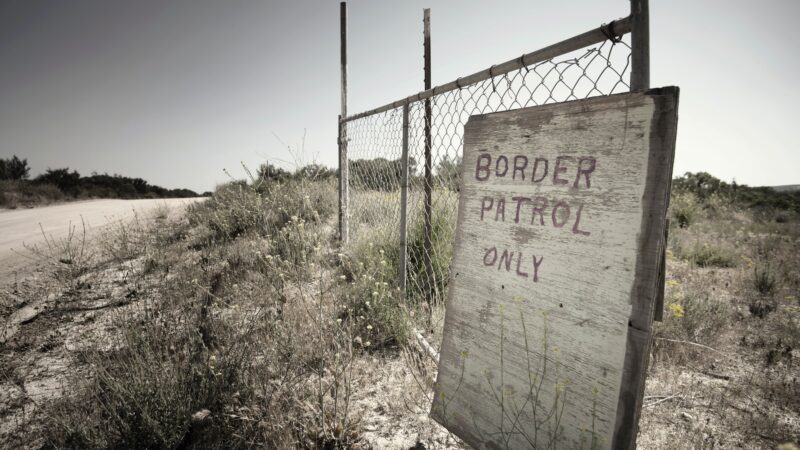In 1996 AD, Samuel P. Huntington wrote and published his book The Clash of Civilizations and the Remaking of the World Order.The main thesis of this American political scientist is that unlike the wars of the past, fought over nation and ideology, the wars of the future will be fought between cultures. This book represented a different Western view of future world history after the end of the Cold War, contrasting the liberal thesis of the Japanese-American political analyst Francis Fukuyama and his The End of History and the Last Man. Fukuyama’s vision of the coming of ‘the end of history’ proved to be an arrogant liberal illusion. Even Fukuyama himself abandoned this position.
On the other hand, Huntington’s vision was criticized by various spheres of the political spectrum. Major criticism of Huntington’s thesis was laid out by two schools of thought: Marxism and post-colonialism. The Marxist critique was based on the lack of an economic analysis within Huntington’s book, especially when compared to the neo-Marxist world-systems analysis of Immanuel Wallerstein. The post-colonial reaction to The Clash of Civilizations and the Remaking of the World Order was based upon the works of Edward Said, such as his masterpiece Orientalism.. Both criticisms are legitimate, even justified. However, they are missing the point.
The point of Samuel P. Huntington’s thesis was to stress the important role culture will inevitably play in the future of international relations. The author of this text, however, would add an even bolder statement – that culture always played an important role within the actual practice of not only international relations, but world history as well. That the ‘clash of civilizations’ was, and is, an inevitability.
However, Samuel P. Huntington’s work should be understood not as a manual or some sort of a holy scripture, but as a reorientation towards older, now forgotten schools of historical thought. His own, extremely simplistic view of civilizations has been influenced by the much more complex and nuanced historical analysis of civilizations offered by the great Irish-American professor, Carroll Quigley. Quigley, was in turn, under the influence of the quintessential British historian, Arnold J. Toynbee – who was himself under the influence of the legendary German philosopher of history, Oswald Spengler.
That is why political analysts of today should go beyond the works of Huntington, and his oversimplified cultural model – but they should bear in mind the political importance that abstract notions, such as culture and civilization, actually play. The current problems and crises of the modern West are, among other things, a direct result of cultural decay. Of course, there are many causes to the conflicts of our age, which have been studied in more detail by countless academics and philosophers, but the loss of cultural identity of the Western man is often neglected. Any form of collectivism, left or right, has been atomized by the forces of neo-liberalism – the final stage of capitalism. Capitalism – especially in its globalist form – is individual, as well as societal, schizophrenia.
Globalism seeks to undo all cultures and civilizations across the entirety of Earth. Although it is a creation of Western civilization, it lacks all of its values. Older civilizations, such as China, India and Islam, are no exception to this. Their values and world-views are challenged by the global forces of Capital, which lacks any and all morals – traditional, religious, ethnic. Even the secular morality of the Enlightenment has been compromised by Capital – all that has been left of them is an empty shell, mere words to be used by mainstream media pundits and opportunistic politicians. Younger cultures, such as Russia, Africa, Latin America or the Malay World are no exception, as well.
One day, a truly global civilization will emerge. But that day has not yet come. Such a culture can only arise naturally, through the endless cycles of cultural death and rebirth. It certainly shall not be born through soulless accumulation of Capital for the oligarchic elites. And it is certainly not the West’s duty to seek the establishment of this ecumenical civilization. The duty of the West is to survive. And in order to survive, the West needs to abandon the globalist project and restore the cultural values which brought its Gothic Springtime. If Caesarism is the inevitable future of the modern West, it is the duty of Western intellectuals to lay the foundations of a more enlightened, yet conservative society.
Caesarism, with its coming, brings destruction – as countless strongmen and charismatic leaders compete for power. At the same time, it is the advent of the Universal State, the final cultural form which brings about the last Golden Age. In order to establish a society which would allow for a more stable transition towards Caesarism and the Universal State, the modern West needs to establish a just society – where working men are awarded for the Labour – as well as a conservative one – where Western traditions are held high. A conservative socialism, where there is a strong sense of spiritual and political hierarchy.
An argument could be made that Capitalism is a product of Western Culture, appearing during the later Middle Ages – what are called by most historians at least, because every connoisseur of the West knows that the period was a truly marvelous birth of a new spirituality. This argument is justified, of course. Evidence for this claim was brought about by the books of Carroll Quigley, Immanuel Wallerstein and Fernand Braudel. Only Japan, as well as Chinese merchants living outside the Middle Kingdom, had the potential to bring about Capitalism – independently from the West. Professor Quigley would add the Canaanites, but that is a topic of its own.
Capitalism is a product of the West, but as Karl Marx and Friedrich Engels in the Communist Manifesto once poetically put it – the sorcerer is no longer able to control the powers of the netherworld he has summoned by his spells. This quite interesting allegory brought forth by Marx and Engels strongly resembles Spengler’s Faustian Man – a term which he uses to describe Western High Culture. Capitalism plays an interesting role in Western history, one quite similar to the role of Mephistopheles in Goethe’s Faust. Capitalism tempts the West, as well as the rest of Mankind. It remains to be seen how and when will the West surpass this historical trial. Although it has created Capitalism (or summoned it, if one subscribes to the philosophy of Nick Land), the West is not Capitalism.
However, the creation of Capitalism is an interesting story by itself. When all societies, which can be deemed as Great Cultures, start – each begins with some sort of hierarchy. India was governed by a strict caste-system (varna), ruled by elite warriors (kshatriya) of Aryan descent, although the clergy (brahmin), also of Aryan descent, were held in high esteem. In the West, a similar system was established. Three estates: the Catholic priesthood, the Germanic nobility, and the Third Estate – consisting of various commoners. Among them rose the merchants, the bourgeoisie. It is among these merchants that the Protestant Reformation caught wind. Max Weber sees Protestantism as one of the foundations of Capitalism. It certainly is, but by itself it is not enough.
The Catholic priesthood represented a cultural Symbol – they were the axis mundi between the sinful world of Men and the Ten Heavens above. Politically, but not spiritually, above them were the Germanic warrior-nobles, usually of Norman descent, who represented power and the divine right of kings. The Third Estate lacked symbolism, they existed to be ruled by their betters. This lack of symbolism will prove essential to the advent of Capitalism as a political force.
Capitalism as a true, naked political force starts with two great revolutions of the late XVII century: the American Revolution and the French Revolution. Before these revolutions, Capitalism did exist as an economic force, but it has not yet replaced the feudal political structure of the so-called “Middle Ages”. The nominal protagonists of these revolutions, especially the French one, were the lower classes – often called sans-culottes (those without breeches). They were the men and women who bled for the revolution and fought against an old, now decrepit system. The decadence of the French nobility, which at the time consisted mostly of uplifted merchants loyal to the absolutist monarchs, became insufferable. However, there was more to it than this simple dialectic.
The peasantry was used. It was used by the richest among the common folk, the rising bourgeoisie, as well as the old nobility which turned to mercantile endeavors, to overthrow the monarchy and establish a new system which would suit their needs. It is here that Capitalism finally manifests itself in the political realm, using Liberalism – and eventually nationalism – as its “religious” justification. The once mighty cultural symbols brought forth by the Gothic Springtime of Western Culture were no more, replaced by the “symbols” of civilization. Where once stood the icons and statues of saints and kings serving an infinite God, representing the spiritual needs of Western Culture, now stood the false idols of money and modernity, clear manifestations of the dawn of Civilization.
Lacking all symbols, the Third Estate soon became anti-symbolic – a trait which has intensified since the end of the Cold War and can be observed when analyzing the various “cancel culture” movements which have appeared in the last decade. The revolutionary fervor started erasing all traces of traditional society, in order to make way for Civilization. Soon, however, Civilization found its enemies among two groups of intellectuals opposed to Liberalism: the conservatives and the radicals.
Conservatives, in the European sense of the word as defined by Immanuel Wallerstein, were nostalgic about the lost world many of them grew up in, or at least heard about from those who lived in it. They fought to stop the endless march of History. On the other side of the political spectrum stood the radicals, who saw Liberalism as too slow and quite unjust towards the proletariat – a new social phenomenon of exploited workers and laborers, serving the bourgeoisie. They wanted to speed up the Wheel of History, through any and all means necessary.
In the end, however, Capitalism defeated them both. Conservatives were defeated by Capitalism’s ability to commodify anything – including older cultural symbols, such as religion. Not just religion. Anything most European conservatives held dear. The symbols of Old Europe became commodities, to be sold and bought like common goods. Others became instruments of the Capitalist Reaction – known to us as fascism – and were used to combat the various forms of radicalism which sought to destroy Capitalism. There was a third group of conservatives, thinkers such as Oswald Spengler, G.K. Chesterton, Rene Guenon, Roger Scruton and many others, which did not fall under the temptations of Capitalism. These thinkers, however, are considered marginal, even by the mainstream Right, as their theories and thoughts are considered “outdated”. The mainstream Right fights only for private property, serving as the “conservative” wing of Capitalism.
The radicals were initially fought against by all means available to the liberal elites. They were used, in rare cases, when a new market needed to be opened for the interests of Wall Street – as was in the case of Russia. However, these Russian radicals were quite different from Western ones, in spirit and culture – if anything else, that is an altogether different topic. Be as it may, the radicals failed to establish the society they have envisioned – and the causes of such failure are many: imperialist sabotage, the formation of securitocracies, left-wing sectarianism, ideological dogmatism, the formation of new classes such as the nomenklatura, and many other contradictions. What remained of the radical movements by the end of the Cold War was also assimilated by the power of Capital, becoming the “progressive” wing of Capitalism. Instead of defending worker’s rights, these new “radicals” turned towards promoting the rights of minorities – especially more controversial ones, such as sexual, and so-called “gender”, minorities. Only a few intellectuals in the West still promote old-school left-wing ideals, but they are quite marginal – usually seen as “red fascists” by the mainstream Left.
The proletarian masses have been stupefied by the power of media, which has lulled the Western working class into a state of consumerist torpor in order to protect the interests of Capital. This transformation has given birth to the Fourth Estate. The Fourth Estate however transcends all boundaries as well, creeping its way across the entirety of Western society. It is anti-symbolic, consumerist to the core, easily appeased by the superficial. They are the people of the panem et circenses described by the Roman poet, Juvenal. However, what the liberal elites have forgotten, is that, unlike the working class of yesteryear, the Fourth Estate lacks any semblance of civic duty. They will follow anyone, authoritarian or liberal, who can satisfy their needs.
Now all that is left for Capitalism is global domination and the destruction of not only Western cultural symbols, or their remnants, but all cultures and civilizations across the globe. They must all be commodified, as there can only be “One Market under God”. Morality and tradition must bend before the laws of the Market, as Humanity gives way to the Machine. Consumerism has grown out of proportions, transcending the economic sphere, slowly dominating both politics and culture – while extinguishing true faith. Like a thousand flowers blooming, various cults and sects rise across the Western world – their “spirituality” nothing more than a shadow on the wall. Dark days are ahead for not only the West, as the Earth’s ruling Civilization, but for the rest of the world as well.
But it is in the darkest of days that the brightest light can shine.
Capitalism, as Karl Marx and Friedrich Engels predicted, began eating itself. Once it falls, the forces of Chaos shall be unchained as the World Order crumbles. However, as in the Western legends of old, chivalrous heroes, egalitarian aristocrats of the soul, shall rise against Chaos and establish a new world – the final Golden Age of the West.



